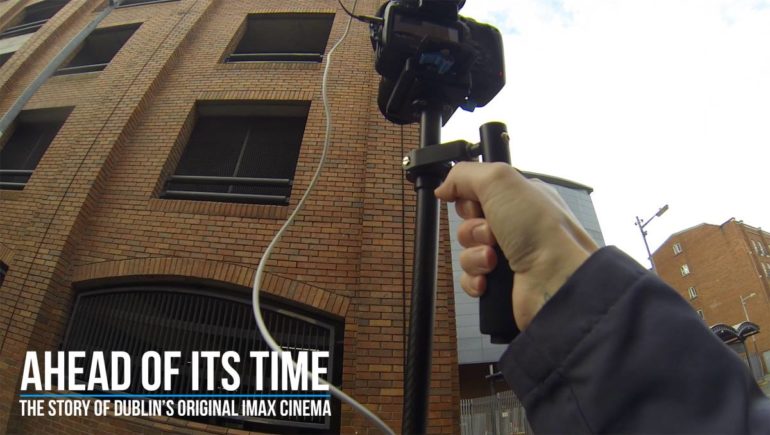Nestled in the bustling heart of Dublin’s Northside on Parnell Street is one of Ireland’s premier cinemas, Cineworld. Housing three whole floors of cinema screens and a bar, it is also home to one of two modern-day IMAX screens in the country. These ultra high-definition, large than life projection systems and screens are being embraced by filmmakers more and more and are seeing something of a resurgence. However, back when studios were still figuring out how to benefit from it, the format floundered and where Cineworld now stands was actually home to Ireland’s first IMAX cinema, nearly 20 years ago.
Ahead Of Its Time is a passion project from first-time director Rob O’Brien who also edited, scored, shot and produced the film; a chronicling of the rise and fall that the original IMAX experienced when it opened its doors back in June 1998, through to October 2000 when it eventually withdrew from service. The film is constructed using a series of interviews from former members of staff, including O Brien himself, and the story is told through their memories of working in the venue during that time. Though the IMAX initially enjoyed hugely positive reception and healthy revenue streams, it quickly becomes apparent to the viewer that the business model employed by management was destined to failure.
With input from people from across the spectrum of employees – including management, general staff and projectionists – the film tells a cohesive and nostalgic version of the highs and the lows of the cinema and its to the credit of director Rob O’Brien that such a free-flowing narrative is crafted together. Ahead Of Its Time is almost exclusively reliant on these former staff members to tell you it’s story and archive footage is sadly sparse. Even though the interviewees cover the history of the cinema itself, the film feels like its missing an ingredient or two, such as a bit of a deeper history of the IMAX format or an exploration of how it has begun to be embraced by present-day directors and studios, leading to a resurgence of interest in it.
Clearly this feature has been a labour of love for all of the people involved and it represents a time in their lives when they were part of what they felt even then was something special, but also something that was ultimately doomed to failure. It’s a cleverly edited and pieced together series of interviews that tells a story of a little bit of Dublin’s cinematic history. Though not without it’s faults, Ahead Of Its Time will be of interest to cinephiles and Irish film historians but it may be too narrowly focused for general audiences to find any real appreciation for.

